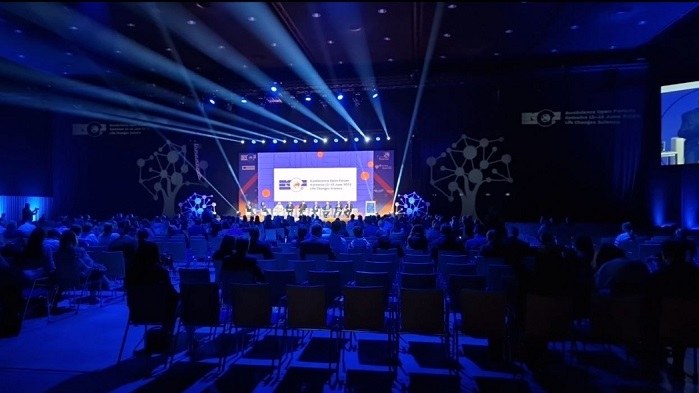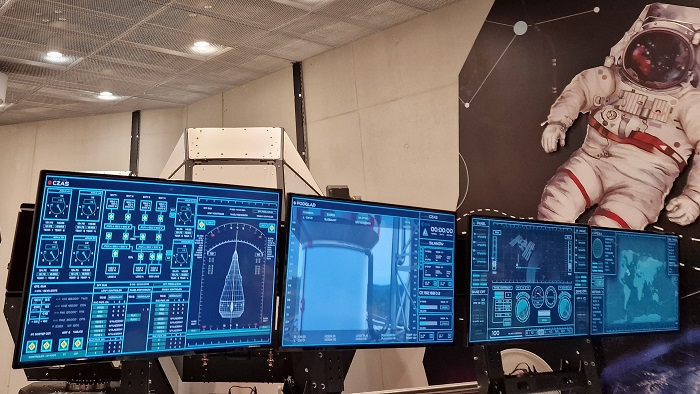ESOF 2024 was an incredibly rich learning experience for me. It was centered around the topic “Life changes science” and focused on “scientific culture, scientific research, and innovation.” The theme highlighted the co-evolution of science and society, featuring topical issues such as cultural identity and societal transformation, digital transformation, energy transition, and healthy society. As a social scientist working on environmental governance at the Helmholtz Centre for Environmental Research UFZ, and having written my master’s thesis on science-policy interfaces in the Global Change Ecology Elite Graduate Programme at the University of Bayreuth, I was interested in sessions on science communication and co-creation methods. I gained a multitude of insights from various talks which made a great impression me. They represent new directions in science: action research, policy impact, design thinking and artificial intelligence.
There were thought-provoking talks on such diverse topics as the implications of AI for art and the question whether sugared beverage taxes can spur healthy food choices. I especially enjoyed a conference session about storytelling and creative visuals as powerful, yet underutilized tools in science communication. The session underscored that the science field has yet to fully harness these tools to convey complex ideas effectively and capture audience attention swiftly.
Supporting programme and networking opportunities
Special recognition should be given to the Silesian University of Technology for sharing with us their advancements in the medical and robotics fields and for their calming nature exhibit, which provided a refuge amidst the bustle. Finally, the Polish National Science Centre should be applauded for producing a beautifully designed and user-friendly handbook on the national and international funding landscapes for researchers. Altogether, ESOF was a superbly engaging transdisciplinary space. Whether at an exhibition or workshop, you could find yourself in conversation with a scientist, entrepreneur, policy-maker, artist or journalist. It truly embraced the spirit of its motto: “created for the society’s benefit and carried out with the society’s participation.”
I was also grateful for experiencing arts, culture and science within the city of Katowice. The city captures the intricate cultural fabric of the Silesia region, with its multiple cultural and ethnic influences. The legacy of its agricultural and industrial heritage is still evident in the landscape, though Katowice is now revitalising its urban fabric and becoming a hub for business, science and culture. The city hosted special science events during the conference - highlights of my adventures include the flight simulator at the Planetarium Śląskie, the grand Silesian Museum and the juxtaposed architecture styles. I am grateful to the Elite Network of Bavaria for enabling this experience.
Text: Sabina Khan



